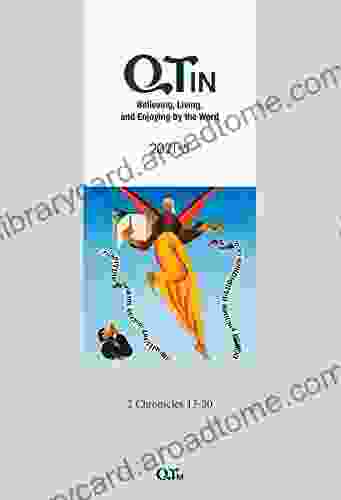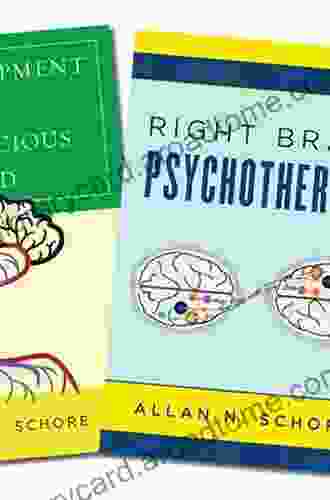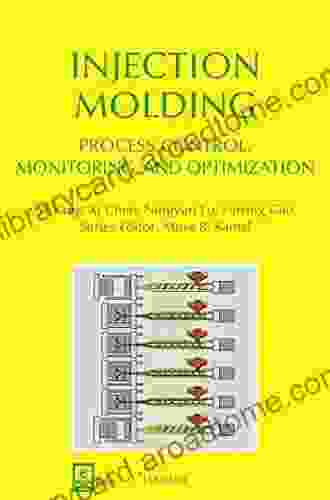Unleash the Power of Right Brain Psychotherapy: A Comprehensive Guide to Interpersonal Neurobiology

In the realm of psychotherapy, a revolutionary approach has emerged that bridges the gap between the mind, body, and relationships. Right Brain Psychotherapy (RBP) offers a comprehensive framework for understanding the complex interplay between our brains, our interpersonal experiences, and our overall well-being.
Drawing upon the transformative principles of Interpersonal Neurobiology (IPNB),RBP empowers practitioners with a profound understanding of the neurobiological processes that underlie human connection, emotion, and meaning-making. This article will take you on an in-depth journey into the world of RBP, exploring its foundations, principles, and transformative applications.
Right Brain Psychotherapy is rooted in the groundbreaking field of IPNB, a multidisciplinary approach that integrates insights from neuroscience, psychology, and medicine. IPNB has revealed the profound influence of relationships on our brain development and functioning throughout our lives.
4.8 out of 5
| Language | : | English |
| File size | : | 6270 KB |
| Text-to-Speech | : | Enabled |
| Screen Reader | : | Supported |
| Enhanced typesetting | : | Enabled |
| Print length | : | 373 pages |
At the heart of IPNB is the recognition that we are not isolated beings, but rather deeply interconnected with others. Our brains are wired for connection and relationship, and our interactions with others have a profound impact on our neurobiology.
RBP builds upon these principles to create a therapeutic approach that emphasizes the importance of the right hemisphere of the brain in fostering connection, empathy, and attunement. The right hemisphere plays a crucial role in processing nonverbal cues, emotional regulation, and the formation of attachments.
RBP is guided by a set of core principles that provide a roadmap for practitioners. These principles include:
- The importance of the right brain: RBP recognizes the vital role of the right hemisphere in creating connection, empathy, and attunement.
- Mind-body integration: RBP emphasizes the interconnectedness of the mind and body, and how physical experiences can impact our psychological well-being.
- Interpersonal resonance: RBP focuses on fostering interpersonal resonance, a state of mutual attunement and mirroring that promotes healing and growth.
- Co-regulation: RBP recognizes the importance of co-regulation, the process by which we learn to regulate our emotions through interactions with others.
- Trauma-informed care: RBP is trauma-informed, meaning that it takes into account the potential impact of trauma on an individual's neurobiology and behavior.
RBP has a wide range of applications in both clinical and non-clinical settings. It can be used to address a variety of issues, including:
- Relationship difficulties: RBP can help individuals improve their communication, intimacy, and conflict resolution skills.
- Trauma recovery: RBP can support individuals in healing from the effects of trauma, promoting emotional regulation and reducing dissociation.
- Personal growth and development: RBP can help individuals enhance their self-awareness, empathy, and capacity for meaningful relationships.
RBP can be used in individual therapy, couples therapy, and group therapy settings. Practitioners receive extensive training to develop the skills and techniques necessary to facilitate transformative experiences for their clients.
RBP offers numerous benefits for individuals and relationships. It can help to:
- Improve communication: RBP enhances the ability to communicate effectively, both verbally and nonverbally.
- Increase intimacy: RBP promotes a deeper connection and intimacy between partners.
- Resolve conflict: RBP provides tools and techniques for resolving conflicts constructively.
- Promote emotional regulation: RBP helps individuals develop healthier ways to manage their emotions.
- Reduce stress: RBP can help reduce stress levels and promote relaxation.
- Enhance creativity: RBP fosters a state of mind that is conducive to creative thinking.
- Strengthen relationships: RBP can help individuals build stronger and more fulfilling relationships.
Right Brain Psychotherapy is a powerful and transformative approach that has the potential to revolutionize the way we understand and treat human suffering. By integrating the principles of IPNB, RBP provides a comprehensive framework for addressing the interconnectedness of the mind, body, and relationships.
This book offers a comprehensive guide to the principles and applications of RBP, empowering practitioners with the knowledge and skills they need to facilitate transformative experiences for their clients. Whether you are a seasoned therapist or a newcomer to the field, this book will provide you with invaluable insights into the world of Right Brain Psychotherapy and its life-changing potential.
4.8 out of 5
| Language | : | English |
| File size | : | 6270 KB |
| Text-to-Speech | : | Enabled |
| Screen Reader | : | Supported |
| Enhanced typesetting | : | Enabled |
| Print length | : | 373 pages |
Do you want to contribute by writing guest posts on this blog?
Please contact us and send us a resume of previous articles that you have written.
 Book
Book Novel
Novel Page
Page Chapter
Chapter Text
Text Story
Story Genre
Genre Reader
Reader Library
Library Paperback
Paperback E-book
E-book Magazine
Magazine Newspaper
Newspaper Paragraph
Paragraph Sentence
Sentence Bookmark
Bookmark Shelf
Shelf Glossary
Glossary Bibliography
Bibliography Foreword
Foreword Preface
Preface Synopsis
Synopsis Annotation
Annotation Footnote
Footnote Manuscript
Manuscript Scroll
Scroll Codex
Codex Tome
Tome Bestseller
Bestseller Classics
Classics Library card
Library card Narrative
Narrative Biography
Biography Autobiography
Autobiography Memoir
Memoir Reference
Reference Encyclopedia
Encyclopedia Alina Daria
Alina Daria Alison Stieven Taylor
Alison Stieven Taylor Alwyn Scarth
Alwyn Scarth Mary A Shafer
Mary A Shafer Aleksandra Zaric
Aleksandra Zaric Albert Jack
Albert Jack Scott M Fisher
Scott M Fisher H M Monteiro
H M Monteiro Amanda Lee
Amanda Lee Alejandro Lugo
Alejandro Lugo Alfonso Borello
Alfonso Borello Allegra Grant
Allegra Grant Ashley Lin
Ashley Lin Suzy Quzy
Suzy Quzy Ted Brownstein
Ted Brownstein Shaoying Liu
Shaoying Liu Alfred Lehmann
Alfred Lehmann Tara Rodden Robinson
Tara Rodden Robinson Dougall Fraser
Dougall Fraser Charles Simon
Charles Simon
Light bulbAdvertise smarter! Our strategic ad space ensures maximum exposure. Reserve your spot today!

 Forrest ReedPractical Foundations of Arm64 Linux Debugging: Disassembling, Reversing, and...
Forrest ReedPractical Foundations of Arm64 Linux Debugging: Disassembling, Reversing, and...
 Rudyard KiplingUnlock Your Genius: The Ultimate Guide to Discovering Your Best Idea, Gaining...
Rudyard KiplingUnlock Your Genius: The Ultimate Guide to Discovering Your Best Idea, Gaining... Patrick HayesFollow ·15.6k
Patrick HayesFollow ·15.6k Harry HayesFollow ·18.4k
Harry HayesFollow ·18.4k Fletcher MitchellFollow ·10.3k
Fletcher MitchellFollow ·10.3k Lord ByronFollow ·6.6k
Lord ByronFollow ·6.6k Brenton CoxFollow ·14.4k
Brenton CoxFollow ·14.4k Craig CarterFollow ·16.2k
Craig CarterFollow ·16.2k Samuel WardFollow ·16.3k
Samuel WardFollow ·16.3k Clay PowellFollow ·7.3k
Clay PowellFollow ·7.3k

 Joshua Reed
Joshua ReedBelieving, Living, and Enjoying by the Word: Unlock the...
In a world filled with...

 Cason Cox
Cason CoxUnveil the Extraordinary World of "The Alexiad": A...
Delve into the Heart of Byzantine...

 Junot Díaz
Junot DíazUnveiling the Intricacies of Intellectual Property: Your...
In today's knowledge-driven economy,...

 Aleksandr Pushkin
Aleksandr PushkinThe Life of Louise Mathew Gregory: A Tapestry of Triumphs...
A Woman of Extraordinary Substance Louise...

 Leon Foster
Leon FosterHomemade Lotion For Beginners: Transform Your Skincare...
Step into the world of...

 Terence Nelson
Terence NelsonUnveiling the Secrets of Radio, Television, and Film: An...
: Embarking on a Journey into the...
4.8 out of 5
| Language | : | English |
| File size | : | 6270 KB |
| Text-to-Speech | : | Enabled |
| Screen Reader | : | Supported |
| Enhanced typesetting | : | Enabled |
| Print length | : | 373 pages |








